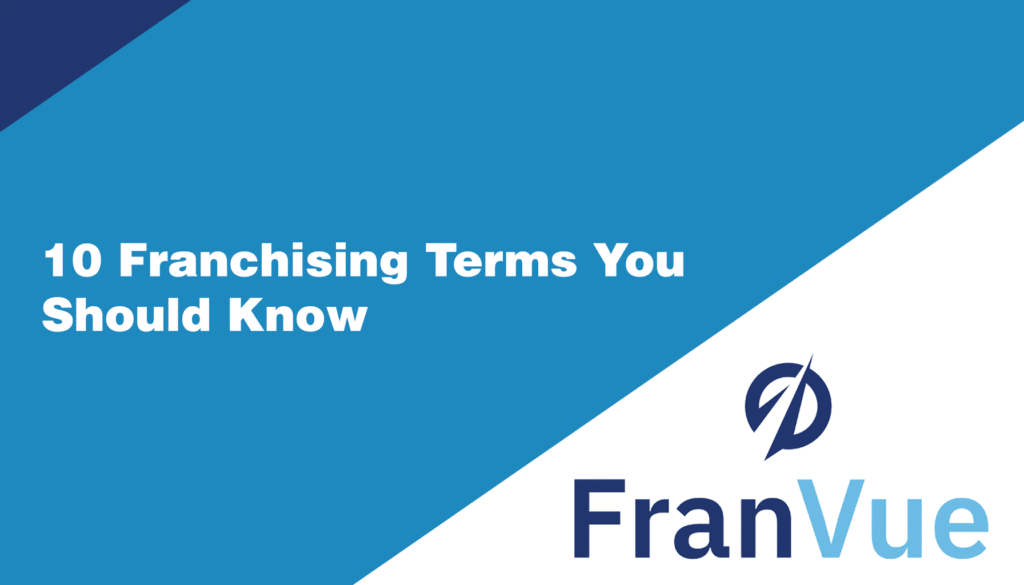If you are trying to learn about everything franchising on your own, you might need a little help to get started. In this post, we will explain 10 important terms you will have to know when looking to own a franchise.
1. Area Franchise
Many franchise owners like to operate two or more outlets of the same franchise. For this, they will need to have an area franchise agreement that will state the territory and the exact timeline for when the franchisee intends to open multiple locations. Franchisors may request an area fee from franchisees who want to operate multiple units in an area.
2. Feasibility Study
Before starting a new franchise (or any business at all), it is good to assess whether a particular franchise will be successful in a given location or market.
3. Franchisee
When you purchase a franchise, you are going to become a franchisee, who is an individual who buys the license to run a business using a franchisor’s trade name, branding, and intellectual property.
4. Franchisor
A franchisor is an organization that sells the right to operate with its name to franchisees. They (the parent company) are the ones that developed the products, branding, and processes that they allow franchisees to use in return for a fee.
5. Franchise Fee
This is the one-time, upfront fee that a franchisor collects from a franchisee who wants to open a franchise. For some franchisors, this fee is fixed, but for others, it varies depending on territory size or experience. Note that many franchisors provide discounts to military veterans, minorities, or franchisees who are currently operating a franchise.
6. Franchise Disclosure Document
The franchise disclosure document (also called the FDD) is a legal document that the Federal Trade Commission requires the franchisors to give to potential franchisees. It contains:
- Franchisor history
- Costs and fees of opening a franchise
- Unit data
- Contractual obligations
- Other information essential to the franchisee-franchisor relationship
The FDD is usually updated every year. Before signing the franchise agreement, it’s important that prospective franchisees go through this document to know what they are getting themselves into.
7. Royalty Fee
Aside from the initial franchise fee, the franchisee will also need to pay a fee to the franchisor on a regular basis. This may be weekly, monthly, quarterly, or even yearly, based on the agreement. The royalty fee varies. It can be a flat fee or a percentage of sales. In addition to the royalty fee, some franchisors also collect a separate fee to pay for advertising.
8. Franchise Agreement
This is an agreement that you will have to read and sign when you want to buy a franchise. Basically, it’s a contract stating the responsibilities of both the franchisee and franchisor, and it’s included in FFD. The Franchise agreement will be your legal lifeline if the franchisor fails to fulfill its obligations.
9. Master Franchise
For large franchise brands, it can be difficult to oversee all the franchises under them on a national scale. These companies may take on master franchisors to help them manage certain geographic regions. The master franchisor will do all the work of the parent franchise (although at a local level), offering excellent customer support and interacting with you as the franchise owner.
10. Product Distribution Franchise
A product distribution franchise is a franchise business that sells the franchisor’s products but follows its own strategy for operating the business instead of using the parent company’s processes.


